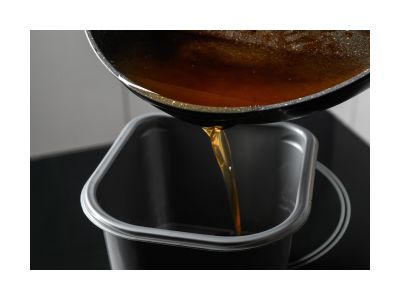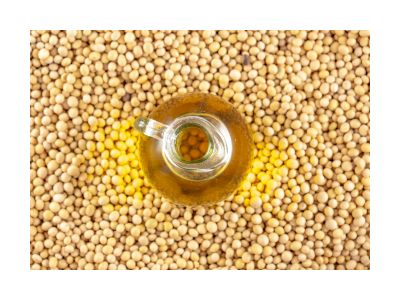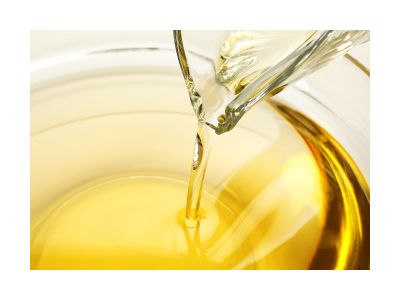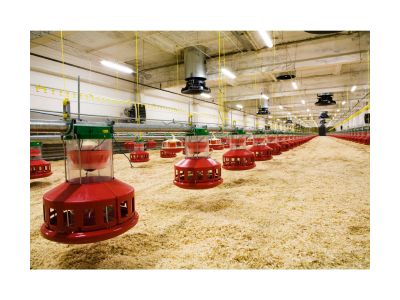Biofuel Feedstock
Wholesale Solutions for Renewable Fuel ProducersFeedstock Supply for Biodiesel and Renewable Diesel Producers
As one of the largest international ISCC-certified biodiesel solution providers, we can provide large scale biodiesel production facilities and crude oil refineries with commercial quantities of used cooking oil, soybean oil, animal fats, and other biofuel feedstock.
About Our Feedstock Supply Capabilities
- International sourcing network of ISCC-certified feedstock suppliers
- Wholesale procurement programs with flexible pricing options
- Partnerships with renewable energy producers and buyers in North America and Europe
- Considerable expertise surrounding compliance and supply chain sustainability
- Real-time pricing and product availability information for customers
- Turnkey logistics services managed and delivered entirely in-house
- Feedstock sales offices in Switzerland, the United States and Canada
Algae
Algae as a feedstock is a prolific and efficient photosynthetic, single-celled plant—it turns sunlight and carbon dioxide into life. Algae are, in fact, the original source of the earth’s crude oil. Millions of years ago, countless generations of algae bloomed, died and settled to the sea floors to became oil.
Algae-derived biofuels recreates and speeds up that process. Algae is an ideal producer because it grows quickly, and needs little more than sunlight and CO2 to work. It can even be cultivated in salt water in the sun-drenched desert—areas that would otherwise be unproductive. Algae does not require arable land or drinkable water. Also, algae consumes CO2, the primary greenhouse gas, reducing the amount in the air, at least temporarily.
Animal Fat
Animal Fat can be used as a feedstock for renewable diesel, as other types of bioenergy. Normally considered a distant secondary feed stock in the West, animal fat in many developing countries may be one of the cheapest and most accessible feedstocks for biodiesel production. Because the cost of the feedstock represents 60-90% of the final cost of production of biodiesel, it is critical to find the lowest cost feedstock possible for this newly emerging industry. Benefits of animal fat for renewable diesel in developing countries include increasing the variety of feedstocks (with animal fat), making the potential for a more robust fair feedstock market.
Corn
Corn is the primary feedstock utilized for the production of ethanol fuel in the United States. Commercial production of fuel ethanol in the United States involves the break down of starch in the corn kernels in to a simple sugar that is fermented to produce ethanol. Wet milling and dry are the two most popular methods for the production of ethanol. In addition, current corn based fermentation facilities could also be converted to make higher value drop in fuels such as butanol or other fungible molecules.
Grasses
Grasses are a quick-growing, readily available fuel source for a biofuel production. Like trees, they are considered “woody” biomass because of the high amount of lignins, a glue-like binder, present in their structures, which are largely composed of cellulose. Such so-called “lignocellulose” biomass sources can potentially be converted into ethanol via fermentation or into a liquid fuel via a high-temperature process.
Municipal Solid Waste
Solid waste is garbage or refuse, including solid, liquid, semi-solid, or contained gaseous material resulting from industrial, commercial, mining, food, agricultural operations, and everyday activities. This non-recyclable waste destined for landfills is full of carbon that can be chemically recycled into biofuels. Using a combination of heat, pressure, advanced chemistry, and special catalysts, municipal solid waste can create second generation ethanol, and other biofuels.
Sugars
The vast majority of today’s ethanol is derived from starch and sugar-based feed stocks. The sugars in these feedstocks are relatively easy to extract and ferment using widely available biochemical conversion technologies, making large-scale ethanol production affordable. Starch-based feedstocks include plants such as corn, wheat, and milo. The starches in these plants are chains of sugars that can be broken down into simple sugars before fermentation. Sugar-based feedstocks, such as sugar cane and sugar beets, contain simple sugars that can be extracted and fermented readily. Corn is the feedstock for more than 90% of current U.S. ethanol production. Brazil, the world’s second-largest ethanol producer behind the United States, uses sugar cane as a feedstock.
Vegetable Oil
Vegetable Oil is a feedstock like animal fat used to produce renewable or biodiesel fuel. Also with the use of waste vegetable oil (WVO) unlike all the other promising feedstocks for biomass energy, vegetable oil does use food crops, but only ones which were turned into vegetable oils, used, and discarded as no longer suitable for human consumption. Many fast food restaurants go through hundreds of gallons of vegetable oil each week, and this oil is simply thrown out into the trash. It can be filtered and then modified to make renewable diesel or biodiesel.
Wood
Energy from wood is derived both from direct use of harvested wood as a fuel and from wood waste streams. The largest source of energy from wood is pulping liquor or “black liquor,” a waste product from processes of the pulp, paper and paperboard industry. Gasification technology puts the black liquor through a series of catalytic processes to produce chemicals or fuels such as methanol, dimethyl ether (DME), or F-T diesel.
Review of Crops Used to Make Biodiesel Feedstock
Over 350 oil-bearing crops have been identified as potential biodiesel feedstocks. However, palm, jatropha, rapeseed, soybean, sunflower, and peanut oils are most suitable for biodiesel produced commercially:
| Group | Source of oil |
| Major oils |
|
| Nut oils |
|
| Other edible oils |
|
| Inedible oils |
|
| Other oils |
|
Feedstock Partner Associations
|
|
International Sustainability and Carbon Certification (ISCC) is a certification system for sustainability, traceability and GHG emission savings. Its goal is to facilitate and improve the various aspects of sustainability in biomass value chains. Targray first obtained its ISCC certification in 2014, and has been a corporate member of ISCC System since 2019. |
 |
The American Fats and Oils Association (AFOA) is a non-profit organization focused on fostering trade and commerce within the United States and throughout the world for animal, fish, and vegetable fats, oils, and protein. The AFOA works to promote uniformity and certainty in the standards of such products and in the customs and usages of the trade. |
 |
The European Bulk Oil Traders’ Association (EBOTA) was formally established in December 2011. Acting on behalf of its members, EBOTA engages issues impacting the bulk trading of oil liquids, petrochemicals, biofuels, petroleum diesel and associated derivatives in Europe. The organization also provides members with training on REACH, ADN and RED II compliance. |
 |
The Advanced Biofuels Association (ABFA) supports and advocates for public policies that are technology neutral, utilizes sustainable feedstocks, and offers subsidy parity to ensure all viable advanced biofuels can compete with the benefit of a level playing field. The organization engages government bodies at all levels to secure support for the advanced biofuels industry. |
Related Content
Animal Tallow
Animal tallow – a rendered form of fat which includes beef tallow, pork lard, and chicken fat – is an increasingly attractive feedstock option for renewable fuel manufacturers.
Used Cooking Oil (UCO)
Targray is well-positioned to meet this demand growth with wholesale used cooking oil solutions aimed at creating value and strengthening the supply chain.
Soybean Oil (SBO)
In the United States, the growth of the biodiesel sector has resulted in a larger share of the domestic soybean oil supply to be consumed as biofuel feedstock.
Yellow Grease
Using yellow grease feedstock can help biofuel producers achieve lower C.I. values for their products, which in turn makes them more attractive on international markets.
Brown Grease
Targray is an ISCC-certified international provider of brown grease supply solutions, primarily for use as a feedstock in biodiesel production.
Poultry Fat
Our dedicated team of trade, logistics, and compliance experts work closely with customers to ensure a reliable and efficient supply of poultry fat feedstock, while also ensuring compliance with regulatory requirements.






